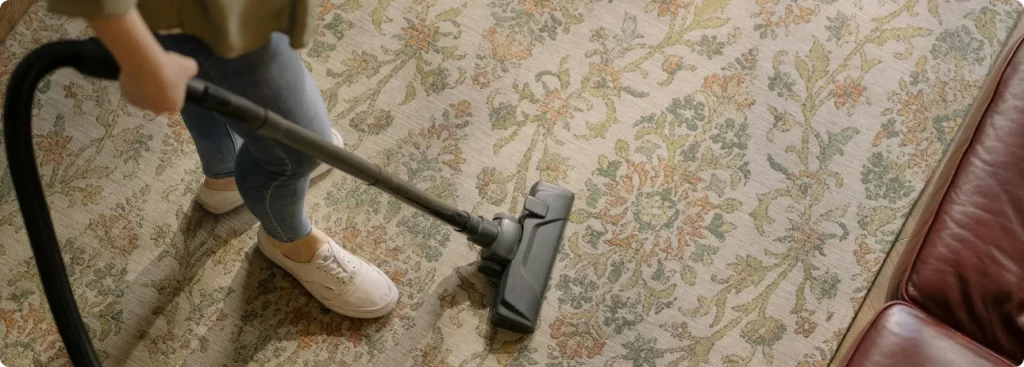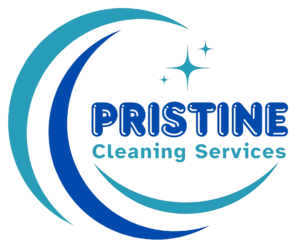Keeping your home clean can often feel like a never-ending task, but with the right tricks, you can cut down on time and effort while achieving amazing results. This guide covers seven simple yet effective cleaning hacks that every homeowner should know. From revitalizing your kitchen appliances to tackling stubborn stains, these cleaning tips will help you maintain a spotless home with ease.
Table of Contents
- Freshen Up Carpets with Baking Soda
- Clean Your Microwave with Lemon Steam
- Use Vinegar to Remove Hard Water Stains
- Dust Baseboards with Dryer Sheets
- Deodorize Your Garbage Disposal with Citrus Peels
- Revitalize Stainless Steel with Olive Oil
- Speed-Clean Blinds with a Sock and Tongs
“A clean home makes a big difference in your everyday life, and hiring professionals takes the stress off while keeping your space healthy and fresh.”

1. Freshen Up Carpets with Baking Soda
Carpets can harbor dirt, dust, and unpleasant odors, especially in high-traffic areas. Baking soda, a natural deodorizer, can help you freshen up your carpets without the need for expensive cleaners.
How to Do It
- Sprinkle a generous amount of baking soda over your carpeted area, focusing on spots with noticeable odors
- Let the baking soda sit for at least 15–30 minutes. For tough odors, allow it to sit for an hour or more
- Vacuum thoroughly to remove the baking soda and any absorbed odors.
Why It Works: Baking soda has natural odor-neutralizing properties, effectively absorbing unwanted smells. It also helps lift dirt, leaving carpets refreshed and smelling clean. Plus, it’s safe for households with kids and pets, as it doesn’t contain harmful chemicals.
2. Clean Your Microwave with Lemon Steam
The microwave is a common hotspot for spills and food splatters. Cleaning it, however, can be quick and simple with the help of lemon steam. This method not only loosens food residue but also leaves your microwave smelling fresh.
How to Do It
- Fill a microwave-safe bowl with one cup of water
- Slice a lemon in half, squeeze its juice into the bowl, and place the lemon halves in the water
- Microwave the bowl on high for 3–5 minutes, letting it steam
- Once the microwave stops, let the bowl sit inside for a couple of minutes to allow the steam to penetrate the grime
- Carefully remove the bowl and wipe down the microwave interior with a cloth or sponge.
Why It Works: The steam from the heated lemon water loosens dried-on food and grease, making it easy to wipe away. Lemon juice has natural antibacterial and deodorizing properties, so this trick not only cleans but also leaves the microwave smelling fresh.
3. Use Vinegar to Remove Hard Water Stains
Hard water stains can leave unsightly marks on faucets, glass shower doors, and other bathroom surfaces. Fortunately, vinegar is a highly effective and eco-friendly solution for dissolving these mineral deposits.
How to Do It
- For showerheads or faucets: Soak a cloth or paper towel in white vinegar and wrap it around the stained area. Leave it for 30 minutes, then wipe away
- For glass shower doors: Spray white vinegar directly onto the glass, let it sit for a few minutes, and then wipe with a clean cloth. For tough spots, use a sponge or a soft-bristle brush.
Why It Works: The acetic acid in vinegar breaks down minerals like calcium and magnesium, which cause hard water stains. Vinegar is safe for most surfaces and is an excellent, chemical-free alternative for everyday cleaning.
4. Dust Baseboards with Dryer Sheets
Baseboards often collect dust, pet hair, and grime. Instead of using a regular duster, try dryer sheets for this job. Not only will they clean the baseboards, but they’ll also help repel dust.
How to Do It
- Take a dryer sheet and simply run it along your baseboards
- If your baseboards are particularly dirty, you might need to go over them a couple of times or use a slightly damp cloth beforehand to remove the initial layer of dirt.
Why It Works: Dryer sheets are designed to reduce static on clothes, and they work similarly on surfaces. This static-reducing property helps repel dust from settling, keeping your baseboards cleaner for longer. Plus, dryer sheets leave a fresh scent, adding an extra touch of freshness to your room.
5. Deodorize Your Garbage Disposal with Citrus Peels
Garbage disposals can develop unpleasant odors over time due to food buildup. Citrus peels are a great natural deodorizer that also helps keep your disposal smelling fresh and clean.
How to Do It
- Drop a few small pieces of citrus peels (lemon, orange, or lime) into the disposal
- Turn on the disposal and run cold water for a few seconds as it grinds the peels
- Afterward, pour in a bit of baking soda, followed by a few tablespoons of white vinegar, to further clean and neutralize any lingering odors.
Why It Works: Citrus peels contain natural oils that are both fragrant and acidic, helping to deodorize and clean the disposal. Combined with baking soda and vinegar, this method leaves the disposal fresh, free of odors, and less prone to buildup.
6. Revitalize Stainless Steel with Olive Oil
Stainless steel appliances and fixtures look sleek, but they can easily show fingerprints, smudges, and water stains. Olive oil is a surprising and effective remedy for restoring shine to stainless steel surfaces.
How to Do It
- Put a few drops of olive oil on a microfiber cloth
- Gently buff the stainless steel surface with the cloth, following the grain of the metal
- Use a clean, dry cloth to wipe off any excess oil, ensuring a streak-free finish.
Why It Works: Olive oil adds a protective layer to stainless steel, making it resistant to fingerprints and smudges. The oil’s natural composition helps polish the surface, leaving it looking shiny without the use of harsh chemicals.
7. Speed-Clean Blinds with a Sock and Tongs
Cleaning blinds can be a tedious task, but with this simple hack, you can make it quick and effective. By attaching socks to tongs, you’ll have an easy-to-use tool for wiping both sides of each blind in one go.
How to Do It
- Grab a pair of tongs and slip an old sock over each side, securing them with rubber bands if necessary
- Spray the socks with a small amount of water or a gentle cleaner
- Clamp the tongs onto each blind and slide them along, cleaning both sides simultaneously.
Why It Works: The sock-covered tongs create a convenient tool for cleaning both sides of each blind without the need for individually wiping each slat. Socks are soft, so they won’t scratch your blinds, and they’re also easy to wash afterward, making this a quick and efficient cleaning solution.
Conclusion
These cleaning hacks provide simple, cost-effective solutions to common household cleaning challenges, helping you keep your home looking and smelling fresh with minimal effort. Incorporating these tricks into your cleaning routine can save you time, reduce the need for harsh chemicals, and make maintaining a clean home far less of a chore.
From freshening carpets with baking soda to making your stainless steel appliances shine with olive oil, each hack is tailored to address specific areas in the home. Next time you face a cleaning challenge, try one of these tricks to tackle it effectively. A clean home can be easy to achieve, leaving you more time to enjoy the comfort and relaxation it brings.


